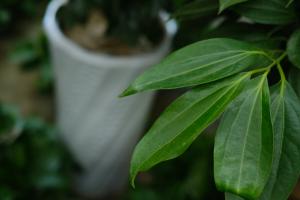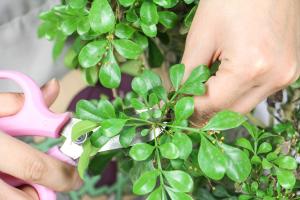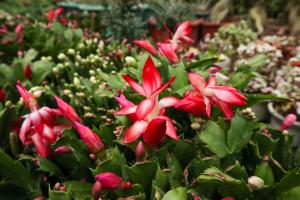How to Care for Your Indoor Potted Banana Plant
If you're looking for a unique and exotic houseplant, a banana plant could be a great addition to your home. Not only do they add a touch of the tropics to your decor, but they also produce mini bananas that are edible! Here are some tips on how to care for your indoor potted banana plant.
Light and Temperature
Banana plants require lots of bright, indirect sunlight to thrive. Avoid placing them in direct sunlight, as the harsh rays can burn their leaves. They also prefer warm temperatures, between 75-85°F during the day and no cooler than 60°F at night. Keep them away from any drafts or air conditioning vents, as the sudden changes in temperature can stress your plant.
Watering
Water your banana plant frequently, but be careful not to overwater. It's important to keep the soil moist, but not saturated. Check the soil every few days and only water when the top two inches of soil are dry. Use room temperature water to avoid shocking your plant with cold water, which can cause leaf discoloration and affect growth.
Fertilizing
Banana plants require regular fertilizing to grow healthy and produce fruit. Use a balanced, water-soluble fertilizer every two weeks during the growing season (spring and summer) and once a month during the dormant season (fall and winter). Be careful not to over-fertilize, as this can damage your plant.
Pruning
To keep your banana plant healthy and looking its best, it's important to prune regularly. Remove any dead, damaged, or yellowing leaves as soon as possible. Also, remove any suckers (small shoots that grow from the base of the plant) to encourage growth and avoid overcrowding. If your plant produces fruit, remove the flower stalk after the bananas have been harvested to prevent the plant from wasting energy on a dead stalk.
Pests and Diseases
Like all plants, banana plants are susceptible to pests and diseases. Keep an eye out for common houseplant pests like spider mites and scale insects, and treat them promptly if you notice any infestations. Diseases like leaf spot and powdery mildew can also affect your plant, so be sure to keep the leaves dry and avoid overcrowding your plant. If you notice any signs of disease, remove any affected leaves and treat the plant with a fungicide.
Conclusion
Caring for an indoor potted banana plant may seem daunting at first, but with the right care and attention, these unique houseplants can thrive in your home. Remember to provide plenty of bright, indirect sunlight, keep the soil moist but not saturated, fertilize regularly, prune as needed, and be on the lookout for pests and diseases. With these tips, your banana plant should be healthy and happy for years to come.

 how many times do yo...
how many times do yo... how many planted tre...
how many planted tre... how many pine trees ...
how many pine trees ... how many pecan trees...
how many pecan trees... how many plants comp...
how many plants comp... how many plants can ...
how many plants can ... how many plants and ...
how many plants and ... how many pepper plan...
how many pepper plan...






























